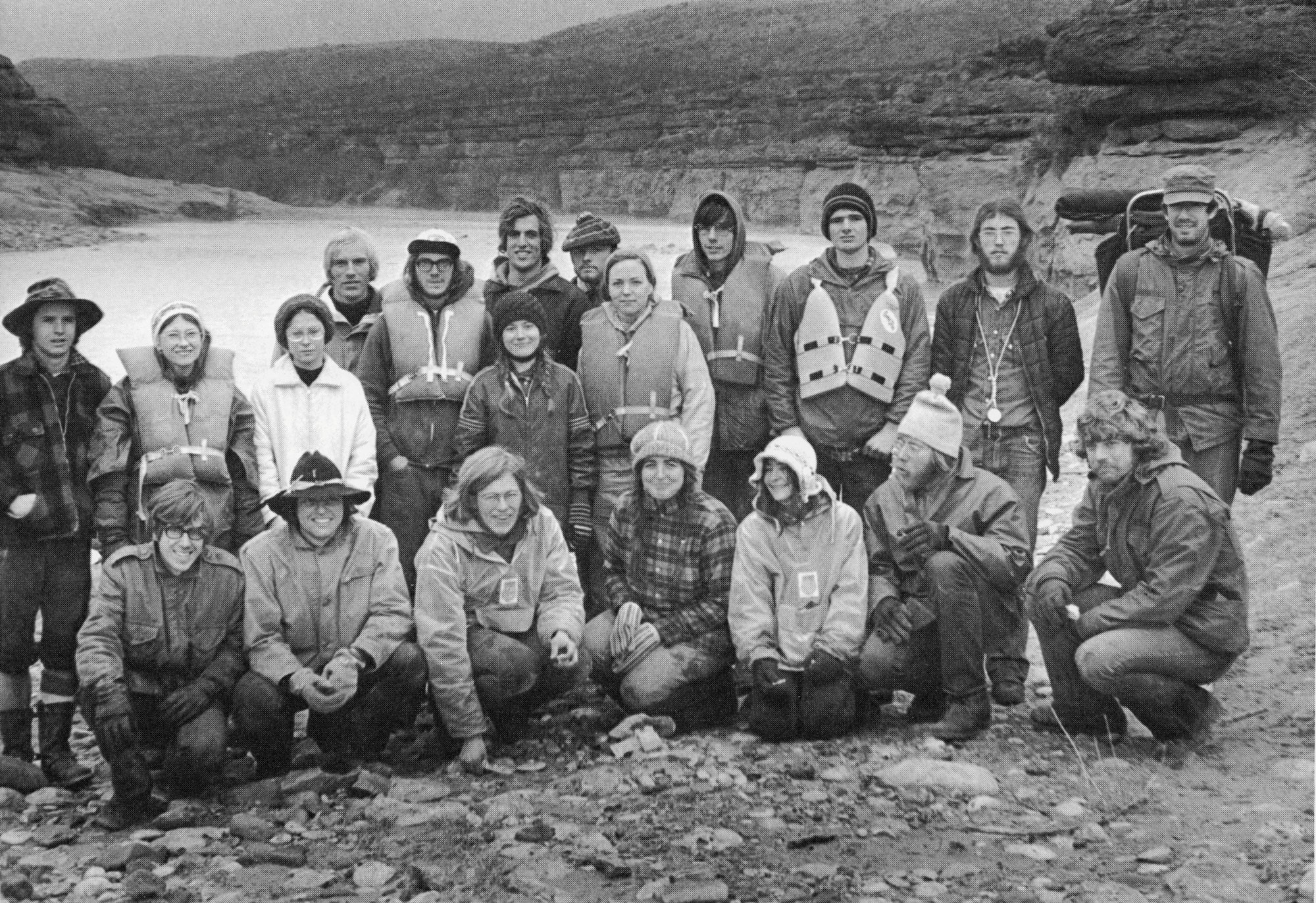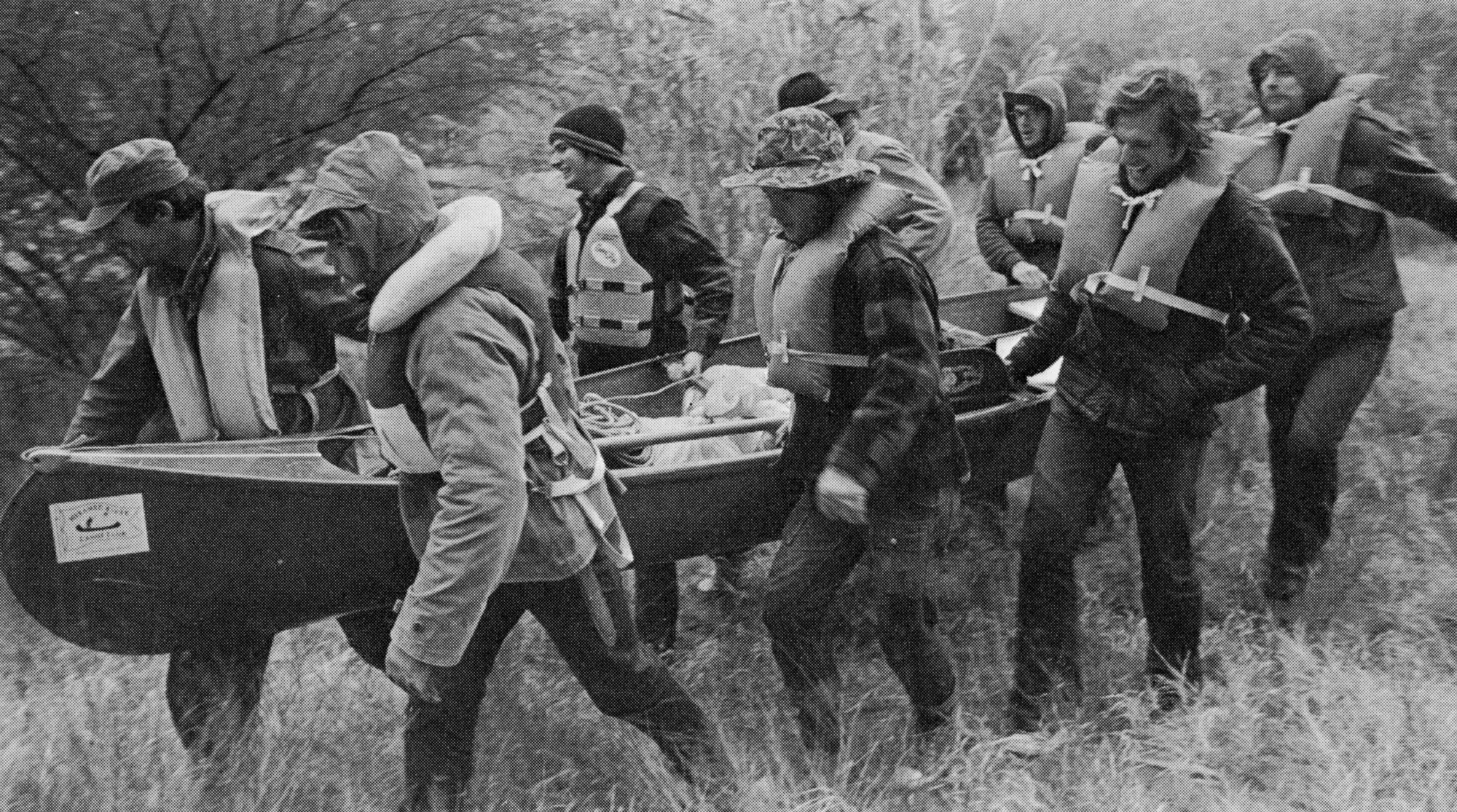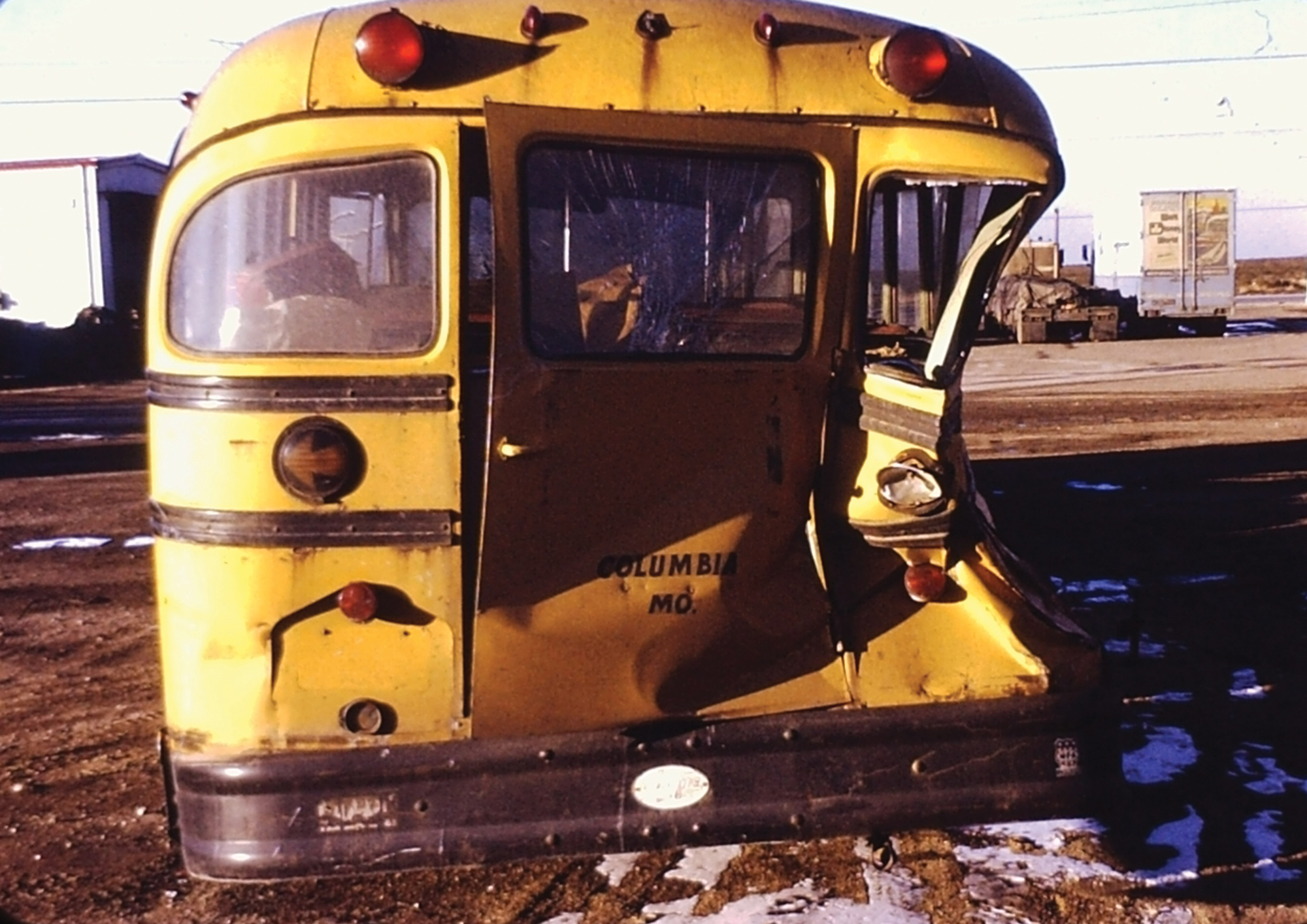
Published on Show Me Mizzou Dec. 16, 2022
Story by Joe Walljasper, B.J. ’92
In July 1972, Deliverance, the tale of a very disturbing canoe trip, premiered in theaters. Five months later, a group of 22 adventurous — if not totally prepared — Mizzou students headed south for their own canoe trip on the Rio Grande that turned into a grueling weeklong battle with nature.
“Deliverance was definitely referenced a time or two on the trip,” David Haubein, B.S. ’74, says with a laugh.
This is the origin story of Wilderness Adventures, the club that exposed a generation of Mizzou students to the thrills and chills of roughing it. Scott Schulte, B.S. ’73, M.S. ’75, who would go on to a long career as a state park superintendent with the Missouri Department of Natural Resources, organized the first adventure. He posted flyers on campus inviting students to join him on a winter break outing. One of the first people to respond was Haubein.
Schulte procured a school bus to carry the students, and Haubein towed the canoes behind his pickup truck. Spirits were high as they pulled out of Columbia. But in a bit of foreshadowing, the muffler fell off the bus on the way to Big Bend National Park, where they arrived just in time for one of the worst winter storms in the history of southwest Texas.
“We had every expectation that it would be balmy, that there might be cool evenings, but it would be in the 70s during the day,” Schulte says. “It didn’t turn out that way.”
About half the campers brought tents, but the other half slept under a canvas tarp, which offered little resistance to the wind, rain and freezing temperatures. The inexperience of some campers was evident in their diets. Some lugged around heavy canned food, and one self-proclaimed minimalist brought nothing for sustenance but a case of beer. “I remember he ate the mustard out of my sardine can,” Haubein says.

They covered more than 100 miles on the Rio Grande in five or six days and then straggled to the bus to begin the long trek back to Missouri over ice-slicked roads in darkness. They hadn’t gone far when Haubein and Schulte, leading the way in the truck, crested a hill and saw flares indicating a roadblock ahead.
Haubein tapped the brakes, and the truck began “gliding through the night,” with the trailer of canoes soon right beside him outside the driver’s side window. The truck ended up in a ditch facing the wrong direction. The bus wasn’t far behind. It skidded the length of the hill and collided with the source of the problem, a jackknifed propane tanker truck. Fortunately, there was no explosion, but the bus was totaled.

While the rest of the students huddled around a toppled yucca plant they set ablaze to stay warm, Haubein took his truck and went looking for help. Power was out across the area, but he eventually followed a light to an oil drilling rig, where the roughneck crew used a two-way radio to call the authorities in a nearby town.
Here, the story diverges (thankfully) from Deliverance because the locals could not have been more friendly. The students were hauled to the small town of Fort Stockton, and various residents opened their homes to them and offered beds, food and clothing until they could ride back to Columbia on public buses. Schulte and Haubein accepted the sheriff’s offer to spend the night in an unoccupied jail cell.
“Jail cell or not, I was glad to be warm,” Schulte says.
Despite all this, Schulte and Haubein did it all over again on the Rio Grande the next year, and Wilderness Adventures continued long after they graduated. Schulte and Haubein went on to paddle competitively and tackled many of America’s wildest rivers together, but no story could compare to their first trip 50 years ago.
“That,” Haubein says, “was quite an adventure.”
To read more articles like this, become a Mizzou Alumni Association member and receive MIZZOU magazine in your mailbox. Click here to join.



